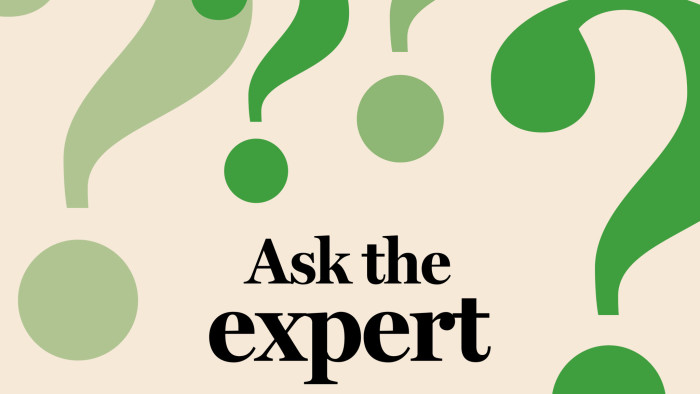Q&A: MBA Applications 2014

Roula Khalaf, Editor of the FT, selects her favourite stories in this weekly newsletter.
Welcome to the Financial Times Ask the Expert Q&A on applying to business school. Are you thinking of applying to study for an MBA? Are you cramming for your GMAT or GRE test? Perhaps you are preparing for an interview at one of your dream business schools?
Applying to business school can be confusing, time-consuming and very expensive. On Wednesday 18th June 2014, a panel of experts answered readers’ questions.
On the panel were:
A 1998 graduate of the Kellogg MBA programme, Kate has spent the past 15 years building a career in brand management, first at General Mills and then at Pepsico. She started her current role at Kellogg in 2012.
Chioma is chief executive of Expartus, the business school admissions consultancy, a former business school admissions manager and author of The Best Business Schools’ Admissions Secrets.

Abhinav Charan, MBA student at the University of Cambridge Judge Business School in the UK
Abhinav has worked in three different industries – energy, manufacturing and infrastructure. He is a certified project management professional and has a masters in engineering from Carnegie Mellon University. Since September 2013, Abhinav has been blogging for the FT about his business school experience.
—————————————————————————————-
2:04pm
Charlotte: Welcome everyone. Here’s the first question.
What metrics are relevant/useful to evaluate MBA programmes, considering there are so many options? ~ Roheet
2:10pm
Abhinav: Here are my top five metrics in no particular order:
Class quality and size: Your MBA is probably as good as the quality of your class. Quality is tough to quantify but a profile search of current students on LinkedIn will give you a good feel of the class/alumni. A smaller class size is a personal choice if you would like to know and be known to everyone in your class. Consider looking up ‘Dunbar’s number’ to get some perspective on this! At Cambridge Judge, I have been lucky to establish a sustainable and tangible connection with much of my class. There are 140 of us in total.
Return on investment: Usually quantifiable and a good benchmark, RoI provides a transactional view. However, an MBA is often more valuable than an RoI figure and therefore it is worth factoring in brand implications.
Alumni network: The strength of the alumni network is vital. Not only will you need them during the job search process but also later as they serve as ambassadors of the school for the rest of their lives.
Activities in the business school/university: Every standard MBA programme will teach you the fundamentals – finance, accounting, marketing, strategy and so forth. But it is what happens outside the classroom that will often move the needle and mould your personality. In Cambridge, I have classmates who have represented the university at various sports, organised massive conferences, delivered projects in different parts of the world, mobilised ideas to launch start-ups and literally biked 100 miles to Oxford to raise money for schools in Kenya!
Rankings: There is often a lot of research and debate on these but they are a useful indicator. I often look for consistency and trends in rankings to develop a tenable belief about a certain school.
I don’t think any of these metrics work in isolation. Often it is more about where you want to head in life and which school has the most optimal wherewithal to get you there. For additional perspective, consider checking out my FT article: A journey of a thousand steps.
2:27pm
Chioma: There are many metrics you can use to evaluate MBA programmes, including rankings, acceptance rates, and median GMAT test scores. However, I recommend that applicants go beyond these obvious ones to consider career statistics and the diversity of the programme.
Applicants often go to business school for career advancement. The employment rates, salary information, and where students were able to secure employment can tell you a lot about the programme you are considering.
Diversity is also important. Part of the growth that you will experience as a student is being in a class where different viewpoints are represented. Are students coming from different countries or from one region? Are they from different industries and backgrounds? This type of information will help you assess how you will fit into a particular programme.
In the end, applicants should focus on the factors that matter to them and use those to assess whether a particular programme would be a good fit or not.
2:33pm
Kate: Students should assess MBA programmes across three primary dimensions: Academic quality – the depth and breadth of faculty expertise and the teaching methodology that best meets individual student needs. Comprehensive student experience – significant opportunities to grow personally and professionally, culture and fit, and the diversity of the student body. Career opportunities – the alignment of programme offering with individual career goals, the breadth of employers that hire graduates from the programme, and the strength and engagement of the alumni network.
2:34pm
One vs two year MBA – is the duration directly proportional to the ROI?
2:39pm
Abhinav: Two year MBAs are generally dearer, therefore you invest more in a two-year programme by virtue of the higher tuition fee, living expenses, and loss in professional income. However, you have time to intern and gain some compensation.
From a return perspective, the picture is a bit haywire. Companies will not normally distinguish between the two programmes, at least in Europe. In the US, there is a clear preponderance of two-year programmes where the ecosystem is often built around two-year programmes to facilitate summer internships after year one. Many leadership programmes or consulting firms routinely hire both from one-year and two-year MBAs, therefore the immediate returns (not counting the investment) must appear similar.
However, this question would be more meaningful if we analyse particular post-MBA sectors. Career outcomes often have a vast range and therefore it is unfair to generalise on an average formulaic basis.
I would focus on the quality of the programme and the alignment of the programme with your individual goals, objectives and constraints. It’s also worth considering whether you want to be in a class with higher work experience (normally one year) or whether you prefer spending two years in school. Your target geography should also play a role in the decision making process.
2:42pm
Chimoa: Salary-wise MBA graduates from one-year MBA programmes have similar starting salaries as their counterparts from two-year MBA programmes. Interpretation on the ROI can vary. Obviously someone who takes two years out for the MBA is foregoing a salary for one year. This places added financial burden for the two-year MBA.
However, the less tangible aspects of having a second year – a chance to start a business with classmates for instance – can be viewed as a significant return on the MBA investment.
For applicants with limited time available, the one-year MBA will be the best option. If you decide on this option, then it is important to be ready to hit the ground running from the very beginning to ensure that you get as much out of your programme as possible. Ultimately, deciding on which programme to go for is a personal decision that you have to consider for yourself.
2:43pm
Kate: Students coming out of our one and two-year MBA programmes see very similar ROI across core metrics including career opportunities, starting salary, access to alumni network, etc.
At Kellogg, the one-year MBA, which has been a part of our core offering for 50 years, is designed for students who meet the following criteria: They have completed requisite business coursework (our one-year programme allows students to fast-track into elective coursework immediately). They have focused career goals that build on their previous career experience.
Since one-year students don’t have a summer internship, students who are looking to make a career change, such as moving from marketing to venture capital, are better candidates for the two-year programme which offers a summer internship opportunity.
2:44pm
What are the most common mistakes students make in their application essays?
2:50pm
Kate: One of the most common mistakes we see is not answering the question asked. The admissions committee puts a lot of thought into the questions we pose and is genuinely seeking to understand the perspective of the applicant.
Another mistake is that some applicants are more concerned with what they think the admissions committee wants to hear versus providing their authentic perspective. Show us who you are through your response.
2:58pm
Abhinav: Don’t make it generic: Customise the essay and write each one as if it was the only one you were writing. Explain transitions: Admission officers appreciate an understanding of your decision making process. Instead of listing that you worked with company X and then switched to Y, explain why you made that switch and how it aligned with your goals in life.
It’s a business case! You’re not just investing in an MBA – the school is investing in you too. The school gives you all this knowledge, which is not necessarily found in books, and a powerful network. The school needs to know how you will make the most of it. Therefore, it’s all about showcasing that it is a mutually fruitful relationship that you are looking to inculcate. The essay can’t be a one-dimensional story of your life alone.
Most importantly, address the question that is being asked instead of trying to recycle or fit a story you may have. When in doubt, contact the school to make sure you understand the questions really well, as well as their tolerance on word limits.
3:16pm
Chioma: One of the most common mistakes applicants make in their essays is being overly ambitious. The current essay trend among MBA programmes is for less content. With programmes requiring fewer and shorter essays it can be tempting for applicants to try and squeeze in as much as they can into the allotted space they have. This often results in fragmented essays that don’t have any real theme or focus.
Another mistake applicants make in their essays is that they choose the wrong topic to write about. The essay is a chance to reveal something about you that the admissions board does not know yet. However, I often see applicants fall into the trap of regurgitating their resume or highlighting obvious achievements that could have been covered in the other parts of the application.
Finally, applicants err in their essays by not giving them the attention they require. Such situations can result in errors that send the wrong message to the admissions board about you.
All of these mistakes can be avoided as long as you recognise that the essay is a tool for you to reveal your brand – something unique about you – to the admissions board.
3:17pm
I’m a communications/public affairs professional (10 years experience) currently in the energy and environment sector. I’m looking to advance my career via an EMBA, thinking of roles in larger corporates or consultancies in the energy sector. I’m weighing how to best leverage my public affairs and political background while managing a career shift into management, but am struggling to figure out the types of roles this would best be suited to outside of government relations. Any insights into non-traditional MBA perspectives? ~ James, Austria
3:22pm
Chioma: Hello James. You can achieve your career objective of using the EMBA to make a career change. Through my consultancy Expartus, we have worked with applicants who have successfully changed their career function and sector. I wouldn’t limit your plans to the government sector.
If the EMBA programme is reputable and has a strong general management core, you will be able to gain the skills that you need to transition away from PR to a general management role. Some flexibility may be needed. For example, you may find that you need to start by working for a smaller energy/environmental firm in a general management role before making the move to the larger corporations or consulting firms. All the best!
3:25pm
Abhinav: As a current MBA student at Cambridge, I know of a few people in my class who possess substantial non-traditional work experience. Some of them have channelled programme resources to plan for a career in mainstream consulting or large corporations.
Consulting firms are probably an ideal springboard to transition into management as they often need people who bring in specialised perspectives but are fungible enough to make an impact in different areas or functions.
3:30pm
What is the best way to prepare for the MBA interview?
3:33pm
Kate: In advance of the interview, identify the best examples that will convey who you are, the experiences you’ve had and what you can contribute to the school.
Recognise that there is typically a limited amount of time for the interview and the interviewer will have a number of questions they want to be sure they cover. The most effective interview candidates are adept at delivering a succinct answer that still gives enough breadth and depth of understanding to the question posed.
Finally, treat it like you would treat an employment interview. Research the school/programme so you can pose thoughtful questions that demonstrate your interest in and fit with the school.
3:37pm
Abhinav: Do your research: The more you read about the school/programme, the more convincing you will sound during the interview. Practice mock sessions: Nothing prepares you for an interview as wonderfully as a mock interview. Do it with people who know the process or someone who can comment on your logic and delivery. Speak to students, staff and alumni: They may tell you things you already know but you when you mention to the admission committee that you’ve had these conversations, it displays your tenacity. Read your essays before the interview: During my Cambridge interview, I was quizzed on an essay I had written a month ago!
The interview questions vary greatly by school but you can expect the obvious ones concerning your motivation, career plans and activities that you want to participate in at business school.
3:40pm
Charlotte: Thanks for participating everyone. All further questions will be answered by Chioma in a weekly updated column until September 2014.


Comments